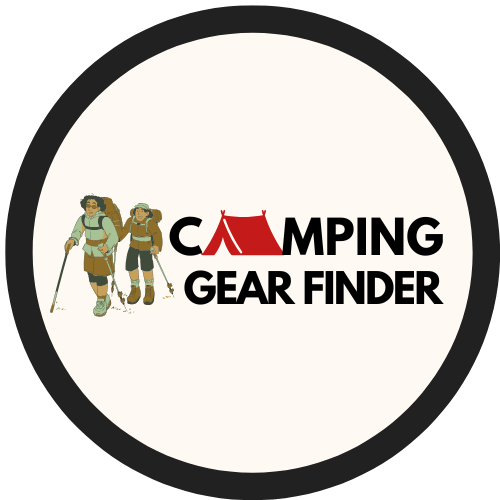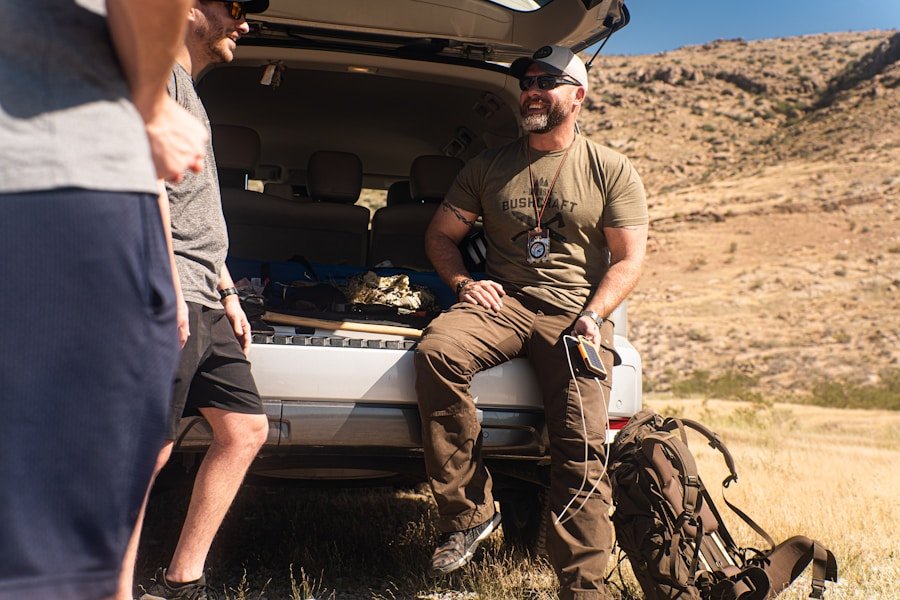Hiking and camping are not only enjoyable outdoor activities, but they can also be incredibly effective for weight loss. When you hike, you engage in a full-body workout that can help you burn a significant amount of calories. The varying terrain and inclines of hiking trails can challenge your muscles and cardiovascular system, leading to increased calorie burn and improved fitness.
Additionally, camping often involves physical activities such as setting up tents, gathering firewood, and cooking over an open flame, all of which can contribute to weight loss. Furthermore, being in nature has been shown to reduce stress and improve mental well-being, which can lead to better overall health and weight management. In addition to the physical benefits, hiking and camping can also provide a mental and emotional boost that can support weight loss efforts.
Being in nature has been shown to reduce stress and anxiety, which can lead to emotional eating and weight gain. Furthermore, the sense of accomplishment and connection to nature that comes with hiking and camping can improve self-esteem and motivation, making it easier to stick to a weight loss plan. Overall, the combination of physical activity, stress reduction, and mental well-being makes hiking and camping an ideal way to support weight loss goals.
Key Takeaways
- Hiking and camping can be effective for weight loss due to the combination of physical activity and being in nature.
- To maximize weight loss during hiking and camping trips, incorporate strength training and interval workouts.
- Choose trails and campsites that align with your weight loss goals, such as more challenging terrain and fewer amenities.
- Plan nutritious meals and snacks for hiking and camping trips to support weight loss and energy levels.
- Enjoy the mental and emotional benefits of being in nature while staying safe by considering factors such as weather and wildlife.
Tips for Maximizing Weight Loss During Hiking and Camping Trips
To make the most of hiking and camping for weight loss, it’s important to approach these activities with a strategic mindset. One of the most effective ways to maximize weight loss during hiking and camping trips is to focus on high-intensity interval training (HIIT). This involves alternating between periods of intense activity, such as uphill hiking or sprinting, with periods of lower-intensity recovery.
HIIT has been shown to be highly effective for burning calories and improving fitness, making it an ideal approach for weight loss during outdoor activities. Another important tip for maximizing weight loss during hiking and camping trips is to pay attention to your nutrition. It’s easy to fall into the trap of indulging in high-calorie camping foods, but making smart choices can help you stay on track with your weight loss goals.
Packing healthy, high-protein snacks such as nuts, jerky, and protein bars can help keep you satisfied and energized during your outdoor adventures. Additionally, focusing on whole foods such as fruits, vegetables, lean proteins, and whole grains can provide the nutrients your body needs for sustained energy and recovery. By combining HIIT workouts with a focus on nutrition, you can make the most of hiking and camping for weight loss.
Choosing the Right Trails and Campsites for Weight Loss Goals
When planning a hiking and camping trip with weight loss in mind, it’s important to choose the right trails and campsites. Look for hiking trails that offer a variety of terrain, including steep inclines and uneven surfaces. This will challenge your muscles and cardiovascular system, leading to increased calorie burn and improved fitness.
Additionally, consider the length and difficulty of the trails to ensure that they align with your fitness level and weight loss goals. Similarly, when choosing campsites, look for locations that offer opportunities for physical activity such as swimming, kayaking, or rock climbing. By selecting trails and campsites that are conducive to physical activity, you can maximize the weight loss benefits of your outdoor adventures.
In addition to the physical aspects, consider the mental and emotional benefits of the trails and campsites you choose. Look for locations that offer beautiful scenery, peaceful surroundings, and opportunities for relaxation. Being in nature has been shown to reduce stress and improve mental well-being, which can support weight loss efforts.
By choosing trails and campsites that offer both physical challenges and mental rejuvenation, you can make the most of hiking and camping for weight loss.
Incorporating Strength Training and Interval Workouts into Hiking and Camping
| Activity | Calories Burned per Hour | Intensity Level |
|---|---|---|
| Hiking (moderate pace) | 430-550 | Moderate to high |
| Camping (setting up/taking down tent) | 200-300 | Moderate |
| Hiking uphill | 550-700 | High |
| Camping (chopping wood) | 400-500 | Moderate to high |
| Hiking with a backpack | 500-600 | High |
Incorporating strength training and interval workouts into your hiking and camping trips can further enhance the weight loss benefits of these activities. Strength training exercises such as bodyweight squats, lunges, push-ups, and planks can be performed at your campsite or along the trail to challenge your muscles and improve overall fitness. Additionally, incorporating interval workouts into your hikes can help you burn more calories and improve cardiovascular health.
For example, you can alternate between periods of brisk walking or jogging with periods of uphill sprints or stair climbing to increase the intensity of your workouts. Furthermore, consider incorporating resistance bands or lightweight dumbbells into your camping gear to add an extra challenge to your strength training workouts. These portable fitness tools can be used for a variety of exercises such as bicep curls, shoulder presses, and rows to target different muscle groups.
By incorporating strength training and interval workouts into your hiking and camping trips, you can maximize the weight loss benefits of these activities while improving overall fitness.
Nutrition and Meal Planning for Weight Loss on Hiking and Camping Trips
Proper nutrition and meal planning are essential for supporting weight loss during hiking and camping trips. When packing food for your outdoor adventures, focus on high-protein snacks such as nuts, seeds, jerky, and protein bars to keep you satisfied and energized throughout the day. Additionally, pack plenty of fruits, vegetables, whole grains, and lean proteins to provide the nutrients your body needs for sustained energy and recovery.
Avoid packing high-calorie processed foods such as chips, cookies, and sugary drinks that can derail your weight loss efforts. Furthermore, consider meal prepping before your trip to ensure that you have healthy options readily available. Prepare simple meals such as grilled chicken with roasted vegetables or quinoa salad with mixed greens that can be easily reheated or eaten cold at your campsite.
By planning ahead and packing nutritious foods, you can stay on track with your weight loss goals while enjoying your outdoor adventures.
Mental and Emotional Benefits of Hiking and Camping for Weight Loss
In addition to the physical benefits, hiking and camping offer numerous mental and emotional benefits that can support weight loss efforts. Being in nature has been shown to reduce stress, anxiety, and depression while improving mood and overall mental well-being. This can lead to reduced emotional eating and improved self-control when it comes to food choices.
Furthermore, the sense of accomplishment that comes with completing challenging hikes or setting up camp can boost self-esteem and motivation, making it easier to stick to a weight loss plan. Additionally, spending time in nature provides an opportunity for relaxation, mindfulness, and reflection that can help reduce stress levels and improve mental clarity. This can lead to better decision-making when it comes to food choices and overall lifestyle habits.
By taking advantage of the mental and emotional benefits of hiking and camping, you can support your weight loss goals while enjoying the great outdoors.
Safety Considerations for Weight Loss Hiking and Camping Trips
While hiking and camping can be effective for weight loss, it’s important to prioritize safety during your outdoor adventures. Before embarking on a hiking trip, research the trail conditions, weather forecast, wildlife activity, and any potential hazards such as steep cliffs or river crossings. Additionally, make sure to pack essential safety gear such as a first aid kit, navigation tools, extra food and water, emergency shelter, and a communication device in case of an emergency.
When camping, be mindful of fire safety by following local regulations regarding campfires and cooking equipment. Always properly extinguish campfires before leaving your campsite or going to sleep. Furthermore, store food properly to prevent attracting wildlife such as bears or raccoons that could pose a safety risk.
In conclusion, hiking and camping offer numerous benefits for weight loss including physical activity, stress reduction, mental well-being, and emotional support. By approaching these activities with a strategic mindset that includes high-intensity interval training (HIIT), strength training workouts, proper nutrition, mental rejuvenation, and safety considerations, you can make the most of hiking and camping for weight loss while enjoying the beauty of nature.
FAQs
What are the benefits of hiking and camping for weight loss?
Hiking and camping can help with weight loss by providing opportunities for physical activity, such as walking, hiking, and other outdoor activities. These activities can help burn calories and improve overall fitness.
How can hiking and camping contribute to weight loss?
Hiking and camping can contribute to weight loss by providing a combination of cardiovascular exercise, strength training, and increased calorie expenditure. Additionally, being in nature can reduce stress and improve mental well-being, which can also support weight loss efforts.
What are some tips for making the most of hiking and camping for weight loss?
Some tips for making the most of hiking and camping for weight loss include choosing challenging trails, carrying a backpack for added resistance, incorporating strength training exercises such as squats and lunges, and being mindful of food choices while camping.
How often should one hike or camp to see weight loss results?
The frequency of hiking and camping for weight loss will vary for each individual. However, aiming for at least 150 minutes of moderate-intensity aerobic activity per week, such as brisk walking or hiking, can contribute to weight loss and overall health.
Are there any precautions to consider when using hiking and camping for weight loss?
It’s important to consider any physical limitations or health conditions before engaging in hiking and camping for weight loss. It’s also important to stay hydrated, wear appropriate footwear, and be mindful of safety precautions while hiking and camping. Consulting with a healthcare professional before starting a new exercise regimen is recommended.













